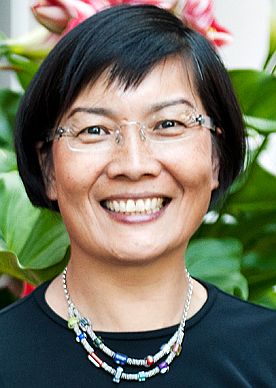 Let’s Have More Meat Before Worrying About Branding, Shall We?
Let’s Have More Meat Before Worrying About Branding, Shall We? I have a natural aversion to branding, for its original meaning as well as a marketing ploy.
I get highly suspicious whenever I hear the term being bandied about. I will never give up the ideal that one should always develop and recognize the substance first before using marketing strategies as shortcuts to shore up product position, name recognition, or making profits.
If an entity, an organization, a town, or a circus, “thinks” it has a good product but is not sure how to present it or position it, shouldn’t the entity want to define the product first? Jumping into branding puts the cart before the horse. If the entity has some trouble defining such a product, I’d say there are profound issues within the entity.
Okay, let me stop the roundabout mystery. This is about Los Alamos current branding mission. First of all, hiring an outside consultant, as in someone from out of state, to do the assessment smacks me as so far-sighted as to lack any insight. Second, we are a small town of 18,000. How difficult is it to tap into local talent? And we do have quite a talent pool here or nearby.
Readers who have some familiarity with my writing would know that I hold high regard for young people. For a very small fee, such as cookies, balloons, kites, crayons, etc., grade school children might offer something genuine and entertaining. For a medium fee, such as a few movie tickets, a rock concert, a sports event, etc., middle and high school students can offer insightful analysis and may get a term paper or two out of such an exercise. Or, pair younger ones with older ones for some interesting exchanges. Either or both of these populations would have a lot more to offer, and at a much more reasonable price, than an outside consultant who has little understanding of how people live in this town and what this population has to offer.
Outside opinions and perspectives are valuable when there are genuine confusions or uncertainties that no one from inside an entity can resolve. What’s more, outsiders’ perspectives, recommendations, or advice can work only if there is a strong need for such opinions from inside of the entity. (Recall the phrase, “I’m from the government and I’m here to help.”) I have not sensed any such current in our community.
As is typical of such wannabe cases, there is always a degree of grandiosity in our notion of how wonderful we are. We are wonderful in our little world, but puffing up an image through branding will not bring more tourism or shoppers on sprees. If we brand ourselves in ways that do not match our reality, visitors will likely feel disappointed and cheated. How is that going to help our town in the long run?
Of course, one could argue that we townspeople might have images of ourselves that are too jaded and prevent ourselves from “objectively” branding our own world “correctly.” The opposite could also be true for the outside consultant who has little appreciation of the deep psyche of this unique town. Hence, my idea of relying on the younger generations. They are more realistic, less cynical, more enthusiastic and idealistic. In addition, such an exercise is far more educational and meaningful than classes with too much focus on testing skills preparations.
My critique of this particular example applies to other types of branding as well. Generally, marketing and advertising strategy rarely offers comprehensive reviews. Advertisement is the ultimate “socially constructed reality;” it gives you only certain angles of the product, never the full wide angle. Just think of all the drug advertisements on TV these days. Because pharmaceutical companies now are required to disclose all side effects, the ads have to list all of them … only after the ads mention the “good” stuff. Image-wise, the ads only show you the “wonderful” results of taking such drugs.
I may not like it, but I acknowledge that image can be an important asset. However, its importance is possible and sustainable only after the core substance is confirmed.
Till next time,
Staying Sane and Charging Ahead.
Direct Contact: taso100@gmail.com
Editor’s note: Dr. Yang has a PhD in Management from the Wharton Business School of the University of Pennsylvania. She taught at Wharton for a number of years, and consulted for small groups and small organizations and on cross-cultural issues. Her professional worldview comprises three pillars: 1. All organizations are social systems in which elements are inter-related. 2. To improve organizations, the focus should be on the positive dimensions on which to build. This philosophical foundation is Appreciative Inquiry. 3. Yang subscribes to the methodological perspective that she is part of the instrument from which to gain quality data from respondents, and with which to compare and contrast with others’ realities.

